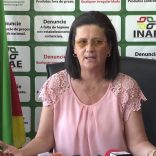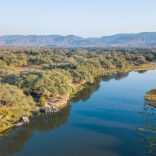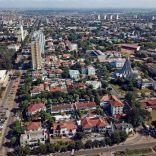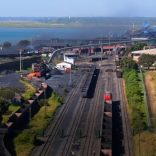Mozambique: Rita Freitas ceases duties as Inspector General of INAE
World Bank grant for water in zambezia and Nampula – AIM report

File photo: RM
The World Bank on Tuesday approved a 150 million dollar grant to support the Mozambican government’s projects to improve water supply and sanitation in the provinces of Nampula and Zambezia.
According to a press release from the World Bank, these two provinces contain 39 per cent of the country’s population but have the lowest access rates to safe water supply and sanitation services.
It adds that “the northern provinces of Mozambique have the highest rates of multi-dimensional poverty and the lowest rate of access to basic services such as water, sanitation, and electricity. These social vulnerabilities are exacerbated by conflict, frequent climate shocks, and minimal basic service provision”.
The World Bank’s representative for Mozambique, Idah Pswarayi-Riddihough, points out that “improving water security in small towns and rural areas will boost the country’s overall economic growth and has major positive externalities in terms of poverty reduction and human capital development”.
She adds that “for rural women and girls, closer water availability means less time spent fetching water. By rehabilitating and upgrading 179 school sanitation facilities, including menstrual hygiene management facilities in schools, this operation will mean less menstrual-induced school absenteeism and dropouts for girls”.
The government’s “Rural and Small Towns Water Security Project” will improve water and sanitation infrastructure in seven towns in Zambezia and ten in Nampula. In addition, it will supply piped water to 22 rural growth centres through the construction and upgrading of water sources, treatment plants, transmission, distribution, and household connections. The project will also see solar energy replacing diesel generators and grid electricity for powering the new systems.
The project also makes special provisions to improve water supply and sanitation for internally displaced people and host communities in the two provinces.
The grant will come from the World Bank’s International Development Association (IDA). Established in 1960, IDA helps the world’s poorest countries by providing grants and low to zero-interest loans for projects and programs that boost economic growth, reduce poverty, and improve poor people’s lives.
IDA is one of the largest sources of assistance for the world’s 74 poorest countries, 39 of which are in Africa. Since it was launched in 1960, it has provided 458 billion US dollars to 114 countries. Annual commitments have averaged about 29 billion US dollars over the last three years, with about 70 per cent going to Africa.
Mozambique’s government has two crucial initiatives to improve water and sanitation, namely the National Rural Water Supply and Sanitation Programme (PRONASAR) and the Presidential initiative “Water for Life” (PRAVIDA), both of which are working towards the implementation of UN Sustainable Development Goal 6: to ensure access to water and sanitation for all by 2030.












Leave a Reply
Be the First to Comment!
You must be logged in to post a comment.
You must be logged in to post a comment.